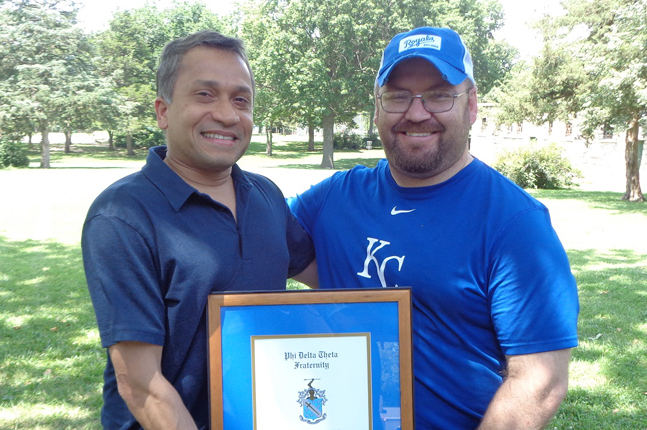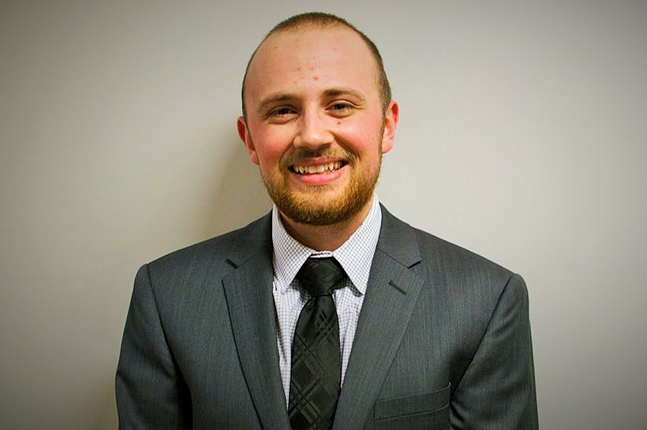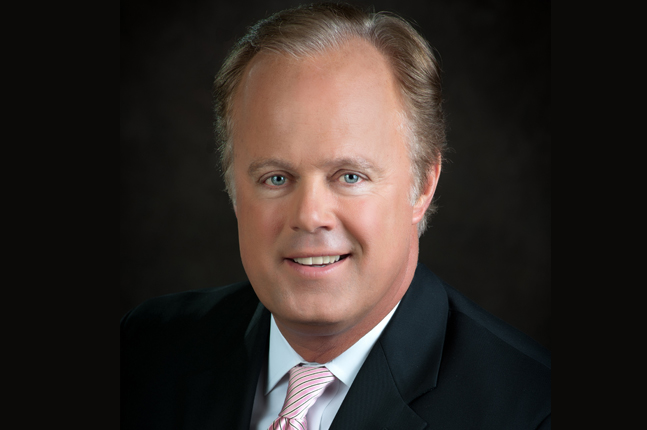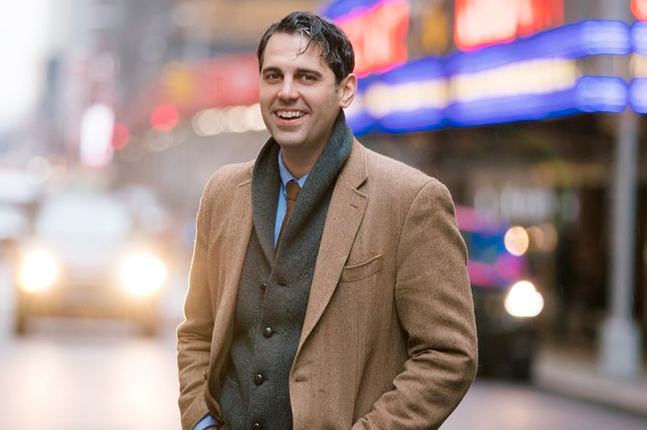Meet Brian Femminella, USC ’22, a second lieutenant in the Military Intelligence Corps of the United States Army overseas. Since Brian’s first year of college, he began conducting research on creating technological tools and music therapy to help people living with PTSD, driven by the experience of witnessing close friends, colleagues, and battle buddies suffer from this mental health condition. In January 2020, Brian founded a startup, SoundMind, leading a research-driven team focused on creating a revolutionary platform to assist the youth and Gen-Z community in dealing with anxiety, PTSD, depression, and more. He served as the company’s chief executive officer for over four years.
Brian is proud to have accumulated diverse experiences in the political, military, technological, and research fields. Most recently, he was a medical virtual reality and artificial intelligence researcher with the USC Institute for Creative Technologies. In previous roles, Brian served as a legislative policy associate with the Office of the Majority Whip James E. Clyburn on Capitol Hill in Washington, DC, working with one of the most respected offices in Congress. He also worked as a cyber security systems intern at White Sands Missile Range (WSMR) and as a United States Army cadet command intern, collaborating with military officials and soldiers nationwide. Brian sits on the Human Rights Campaign LA Steering Committee to support the LGBTQIA+ community and was recently named to the Forbes 30 Under 30 Honorary List for 2023 and 2024.
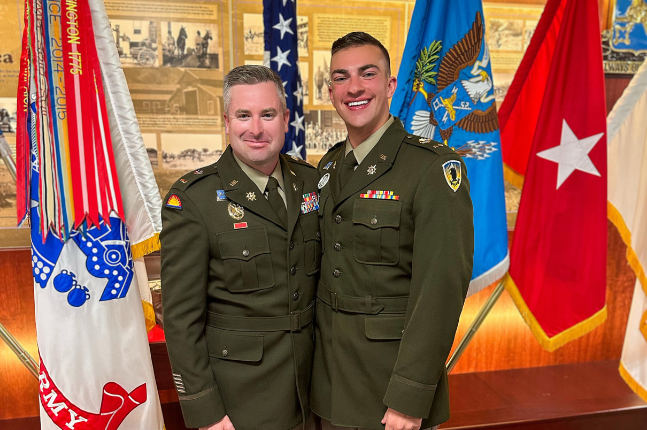
Why is fraternity still relevant and important for society today?
Fraternity taught me what it meant to have a community. Fraternity holds a timeless relevance in our society, offering a unique and invaluable experience that is hard to explain. For me, it’s not just a group of people; it’s a community that becomes a second home, a haven of support and camaraderie. Fraternity teaches us the significance of having a circle that has our back, a group that shares not just space but dreams, aspirations, and challenges. This sense of brotherhood extends beyond the immediate college years, shaping how we have all navigated the world. The tight-knit community I currently feel in my military service has only been felt once in my life, and that was at California Delta. It was my first exposure to a ‘big community’ that echoed what brotherhood really means. The Fraternity became the ‘roots’ of my college life, offering not just friendship but a shared journey of self-discovery. The transition from college to a lifelong connection is what makes fraternity relevant, regardless of how much time has passed. The brothers at California Delta have become a network of individuals cheering each other on through life’s most rewarding and challenging paths. We are now all over the world as finance leaders, music industry superstars, brilliant minds in science, and those serving the nation. Our paths would never have crossed without Phi Delt, and being able to talk about our shared dreams within the Fraternity and to see them become a reality is a reminder that these personal milestones found their roots as just a dream in the walls of California Delta. For me, it’s not just about memories of college; it’s about a lifelong connection that enriches every step of the journey, reminding us that we’re never alone.
What impact did attending the Kleberg Emerging Leaders Institute have on your life?
Attending Kleberg in 2019 taught me that the bond and community we had at USC reached far beyond the borders of California and that there were brothers from all over the country who were just as welcoming and motivated to leave their mark on the world. I think the best way to spotlight Kleberg’s impact is to share a story about a friend of mine I made while there. He was my roommate during the leadership conference, from the University of Arkansas. During the conference, we swapped Phi Delt shirts. I am currently stationed overseas with the United States Army, and I wear the shirt he gave me during Kleberg as a small piece of home, thousands of miles away from the US.
Who from your chapter inspired you? Have you ever told them that?
I wouldn’t say this was one individual but a group who taught me important life lessons. Specifically, the LGBTQ+ members left a lasting impact. Seeing everyone together showed me that we can break down stigmas and that the gay community can support each other within Greek Life. Witnessing so many people comfortable with their identity and creating an accepting community within Phi Delt was powerful. This self-assurance, hands down, played a role in shaping the environment for those who came after. Everyone deserves to be a part of something, and the confidence and strength of the gay community in the house were truly inspiring.
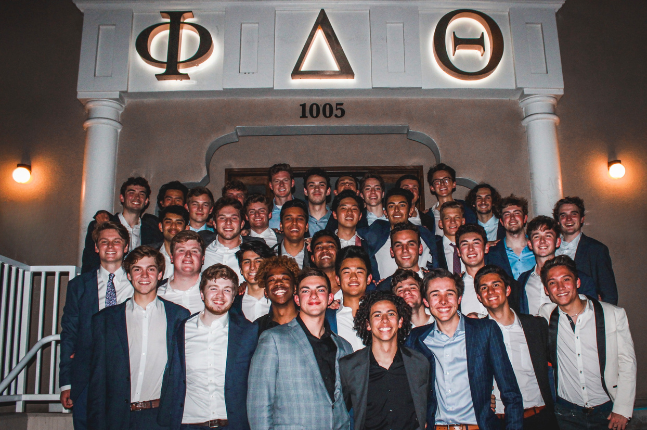
What does become the greatest version of yourself mean to you?
Becoming the greatest version of myself, to me, is about finding purpose and realizing the impact I have on others. Amidst doubts from those who want to bring you down, the key is tuning out the noise and focusing on the happiness found in my journey. Reflecting on mistakes isn’t dwelling; it’s a stepping stone to moving forward differently. Walking away from unexpected things is sometimes necessary, even if it hurts—it’s the path to perseverance and personal growth. We are taught that you must be the best; I am here to debunk that. You have succeeded if you find a way to appreciate life and how you live it.
How did Phi Delta Theta help you navigate the ups and downs of your college experience?
Phi Delta Theta helped me have a place to go to when I wanted to feel a part of something. Whether chatting, watching a movie, or hitting the books, someone was always around. The laughs we shared at Phi Delt were some of the best times of my life. But it wasn’t all about the good times. College has its tough moments for everyone—mental health struggles, loss, and feeling alone. Phi Delt was my support system during some of these challenges. Additionally, the pandemic made it even harder to feel connected, with isolation at its peak. Yet, Phi Delt remained a connection point; the Fraternity was a source of family.
Any advice for current students?
Your journey will throw unexpected curveballs, and that’s ok. Life’s plans might take an unforeseen turn, but remember, “it’s too hard” is never a valid excuse not to keep pressing forward. Your passion can place you in a position you thought was beyond your wildest expectations. As you complete college, don’t let the moments slip away. We are not promised tomorrow, but we are promised the moments we are currently living. Before you know it, you’ll blink and end up on that graduation field. So, say yes to that adventure or club to experience new things. If you hold onto anything, remember never to underestimate the impact of expressing gratitude. Take a moment to tell those in your life that they matter. It’s a simple action that holds immense power. What you will come to learn is that life is not about personal achievements but the connections and the people who make this gift of life worth it all.
Throughout the years, Phi Delta Theta has recognized every day Phis doing extraordinary things. In addition to our Pursuit of Greatness campaign, we asked for nominations for the Fraternity’s 30 Under 30 campaign. The votes are in, and the class is filled with individuals who live out our Cardinal Principles through their achievements and significant contributions to their professions, communities, or universities.


